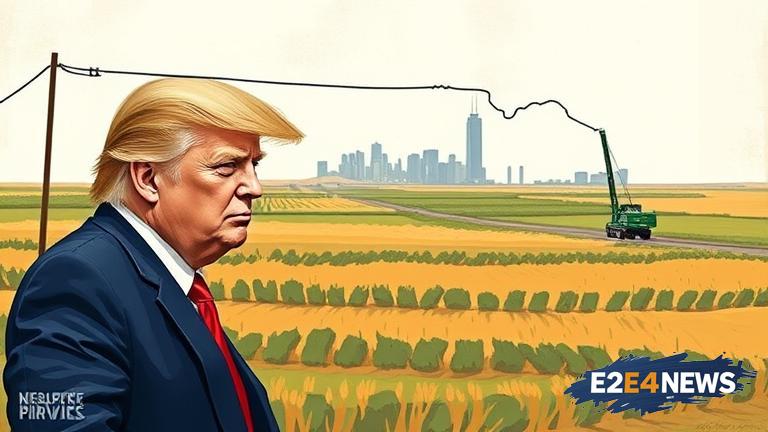The state of Nebraska has recently experienced a decline in its GDP, and Representative Don Bacon is pointing fingers at the Trump administration’s tariffs. According to Bacon, the tariffs imposed by the former president have had a devastating impact on the state’s economy. Nebraska’s agricultural sector, which is a significant contributor to the state’s GDP, has been particularly affected by the tariffs. The tariffs have led to a decline in exports, resulting in a loss of revenue for farmers and ranchers. The state’s economy has been further exacerbated by the COVID-19 pandemic, which has disrupted global supply chains and led to a decline in demand for certain products. Bacon has been a vocal critic of the tariffs, arguing that they have done more harm than good. He believes that the tariffs have led to a trade war with other countries, resulting in retaliatory tariffs that have hurt American businesses. The representative has called for a more nuanced approach to trade policy, one that takes into account the needs of different industries and sectors. Nebraska’s economic downturn has sparked a debate over the effectiveness of Trump’s trade policies. While some argue that the tariffs have helped to protect American industries, others believe that they have had a negative impact on the economy. The tariffs have also led to a decline in business investment, as companies are hesitant to invest in an uncertain economic environment. Furthermore, the tariffs have had a disproportionate impact on certain industries, such as agriculture and manufacturing. The state’s farmers and ranchers have been particularly affected, as they rely heavily on exports to other countries. The decline in exports has resulted in a loss of revenue, making it difficult for farmers and ranchers to stay afloat. In addition, the tariffs have led to a decline in employment, as companies are forced to lay off workers due to the economic downturn. The state’s economy is not the only one to be affected by the tariffs, as other states have also experienced a decline in GDP. The tariffs have had a ripple effect on the economy, leading to a decline in economic activity and a loss of revenue for businesses. Bacon’s criticism of the tariffs is not unique, as other lawmakers have also spoken out against the trade policies. The debate over the tariffs is likely to continue, as lawmakers and business leaders weigh the pros and cons of the trade policies. In conclusion, Nebraska’s economic downturn is a complex issue, with multiple factors contributing to the decline in GDP. While the tariffs are certainly a contributing factor, other factors such as the COVID-19 pandemic and global economic trends have also played a role. As the state’s lawmakers and business leaders work to address the economic downturn, it is essential to consider the impact of the tariffs and other trade policies on the state’s economy.
